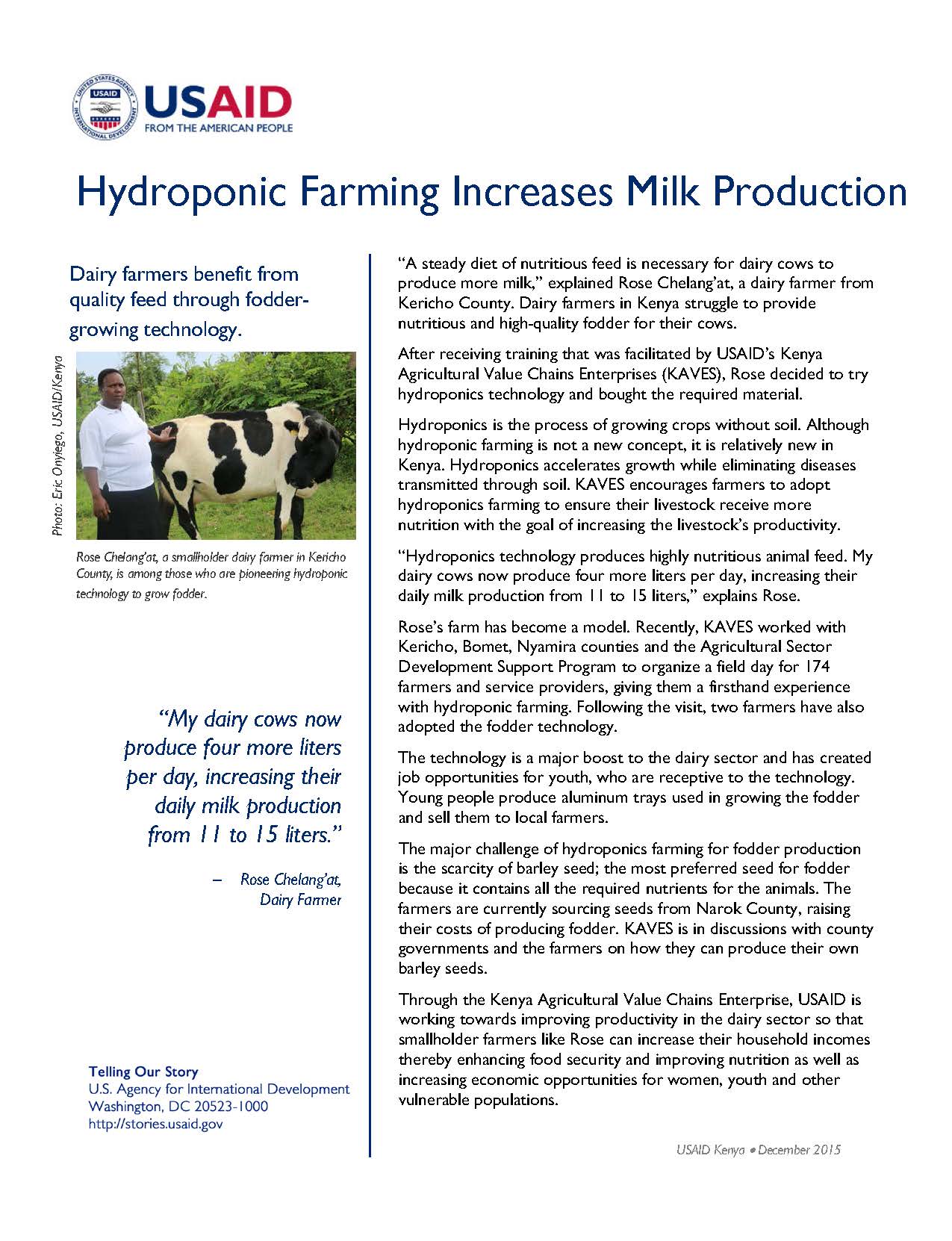“A steady diet of nutritious feed is necessary for dairy cows to produce more milk,” explained Rose Chelang’at, a dairy farmer from Kericho County. Dairy farmers in Kenya struggle to provide nutritious and high-quality fodder for their cows.
After receiving training that was facilitated by USAID’s Kenya Agricultural Value Chains Enterprises (KAVES), Rose decided to try hydroponics technology and bought the required material.
Hydroponics is the process of growing crops without soil. Although hydroponic farming is not a new concept, it is relatively new in Kenya. Hydroponics accelerates growth while eliminating diseases transmitted through soil. KAVES encourages farmers to adopt hydroponics farming to ensure their livestock receive more nutrition with the goal of increasing the livestock’s productivity.
“Hydroponics technology produces highly nutritious animal feed. My dairy cows now produce four more liters per day, increasing their daily milk production from 11 to 15 liters,” explains Rose.
Rose’s farm has become a model. Recently, KAVES worked with Kericho, Bomet, Nyamira counties and the Agricultural Sector Development Support Program to organize a field day for 174 farmers and service providers, giving them a firsthand experience with hydroponic farming. Following the visit, two farmers have also adopted the fodder technology.
The technology is a major boost to the dairy sector and has created job opportunities for youth, who are receptive to the technology. Young people produce aluminum trays used in growing the fodder and sell them to local farmers.
The major challenge of hydroponics farming for fodder production is the scarcity of barley seed; the most preferred seed for fodder because it contains all the required nutrients for the animals. The farmers are currently sourcing seeds from Narok County, raising their costs of producing fodder. KAVES is in discussions with county governments and the farmers on how they can produce their own barley seeds.
Through the Kenya Agricultural Value Chains Enterprise, USAID is working towards improving productivity in the dairy sector so that smallholder farmers like Rose can increase their household incomes thereby enhancing food security and improving nutrition as well as increasing economic opportunities for women, youth and other vulnerable populations.








Comment
Make a general inquiry or suggest an improvement.